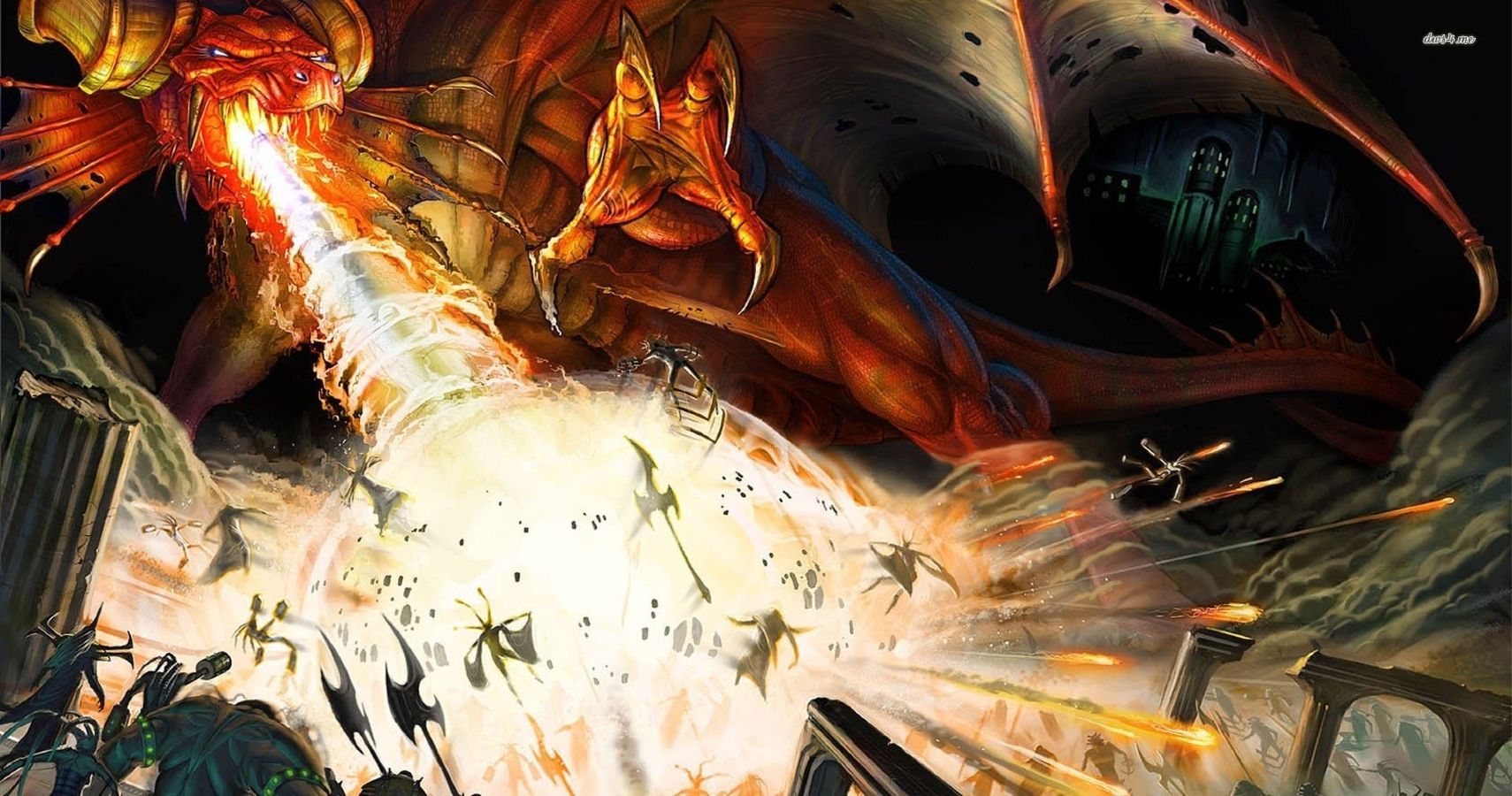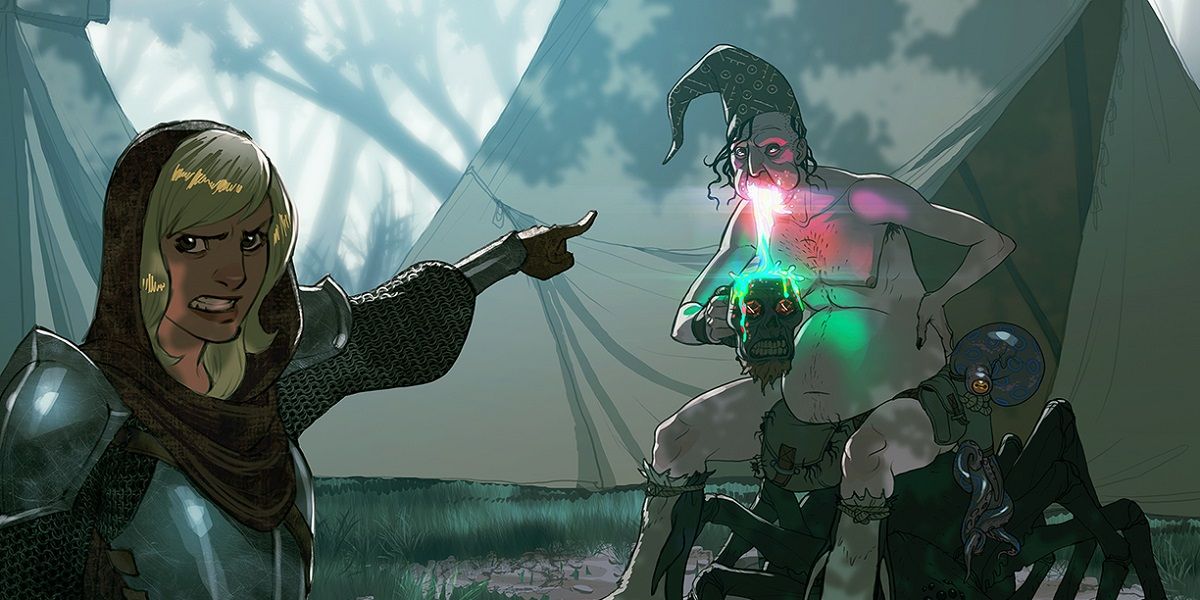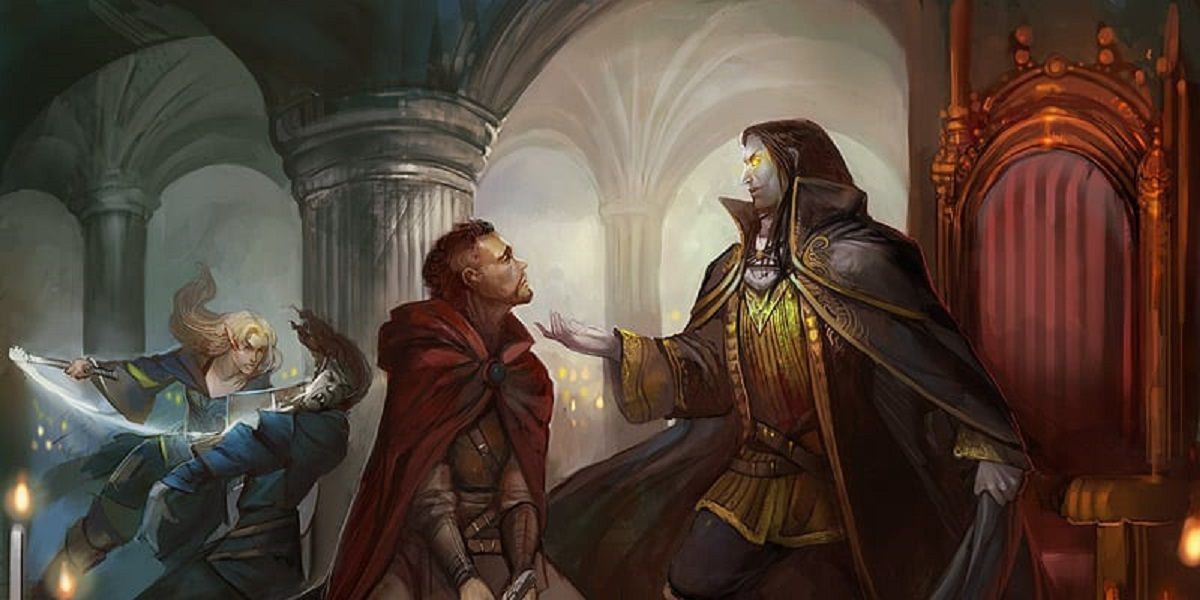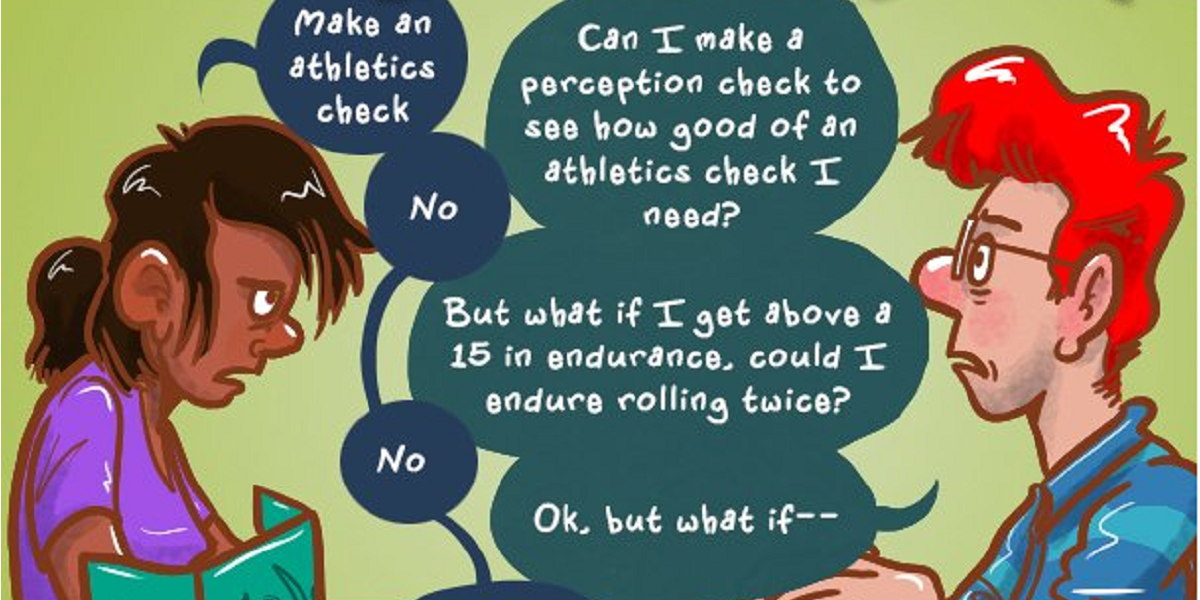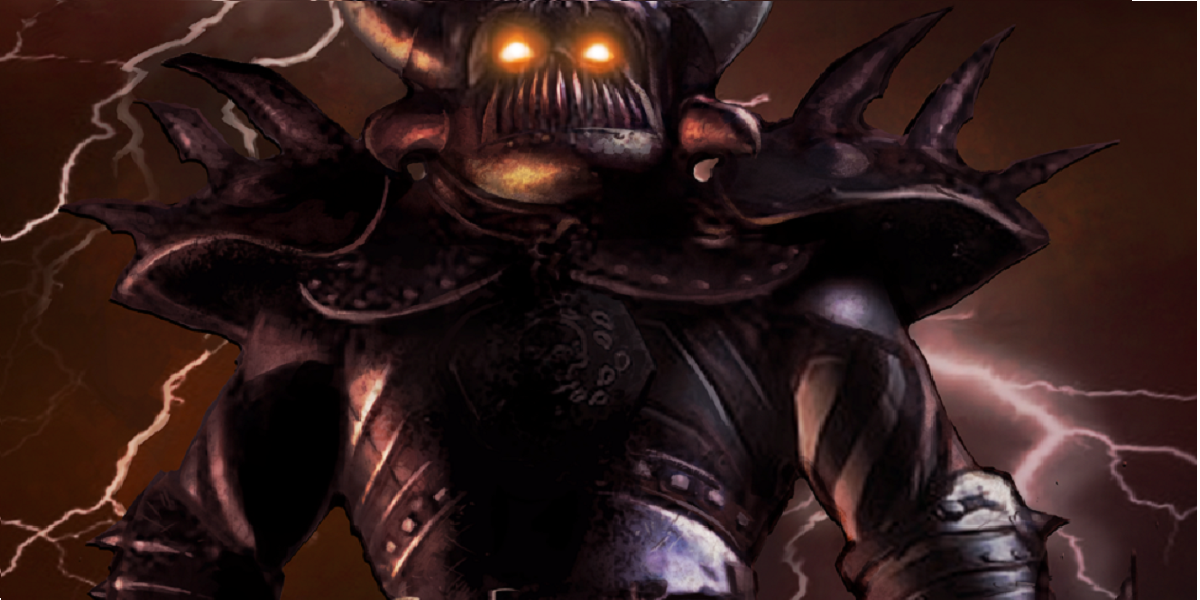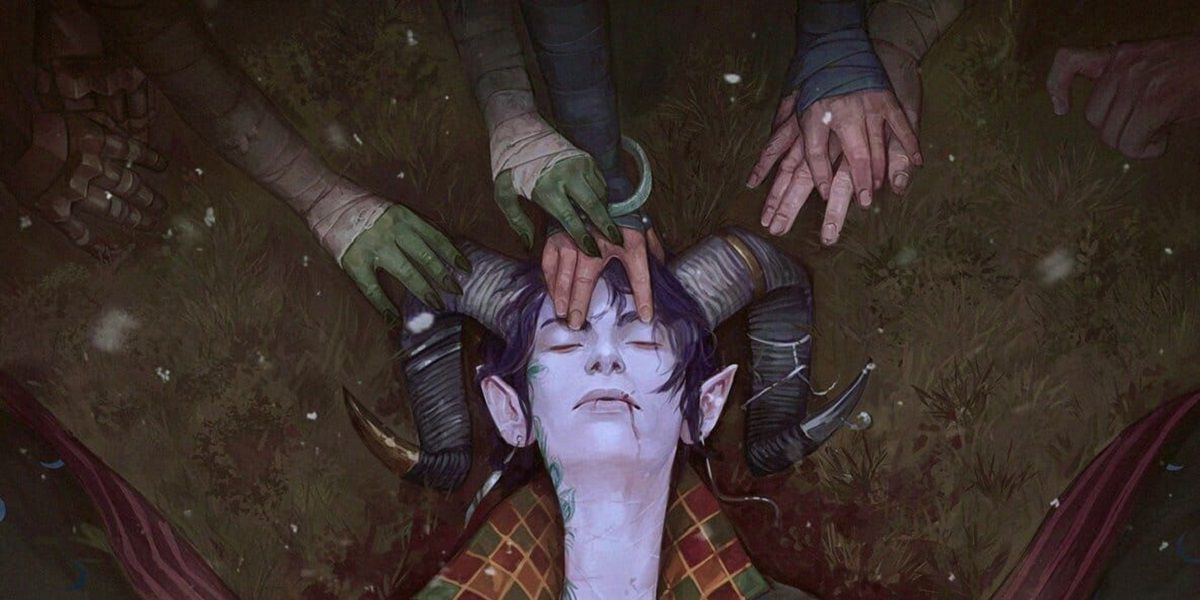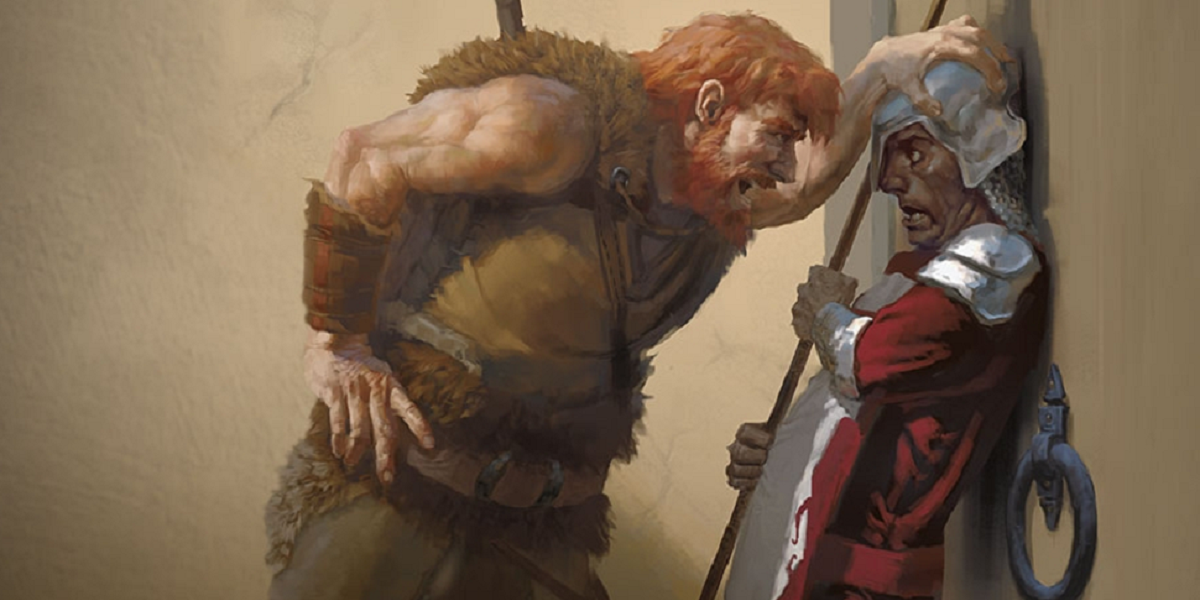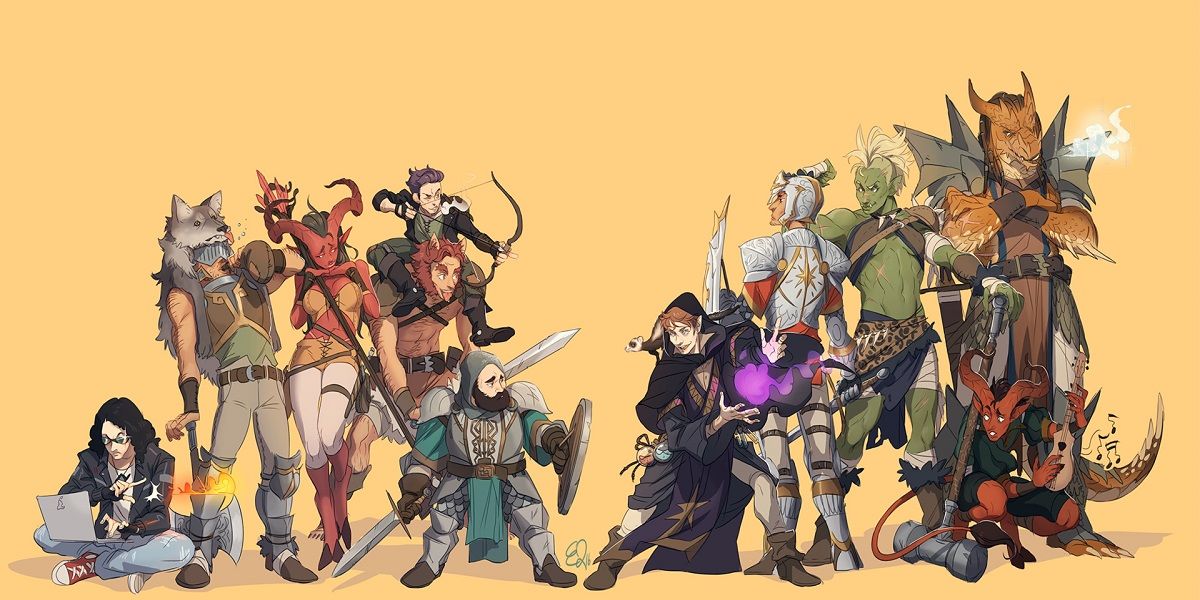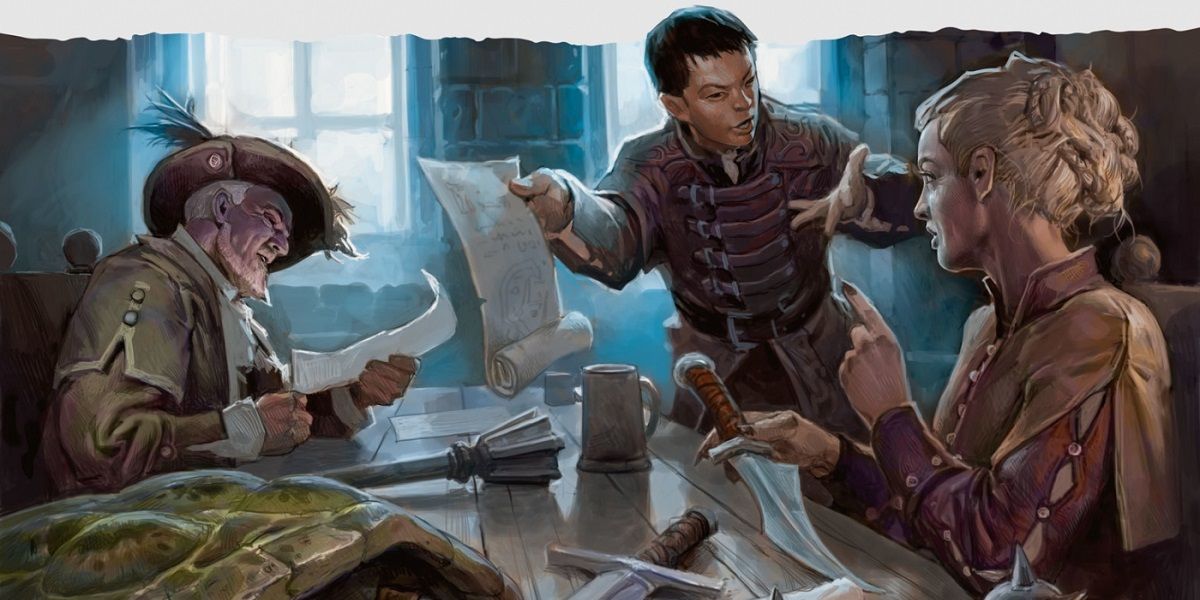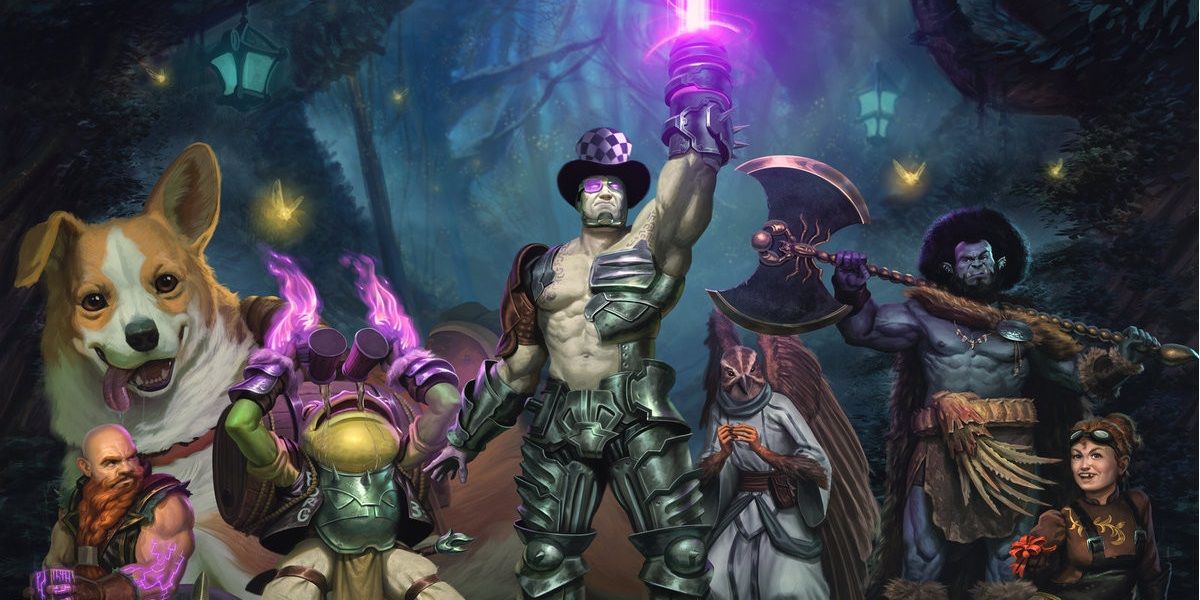Playing Dungeons and Dragons is a communal exercise; everyone at the table should be having a good time. Sometimes, life is hard to control, and things can be a little too real at the table though. In those cases, the player should bring up the matter and converse. A person acting badly at the table can lead to everyone suffering as a result.
There are some problematic behaviors of players that should be highlighted. These sorts of behaviors can be curbed and don't have to be removed entirely, just toned down so that it doesn't become a group problem. It's better to have discussions on these issues out in the open before it becomes a problem that could end the party.
10 Making Crazy (Literally Insane) Characters
There's a lot of fun to be had in playing characters that are literally insane, they have wild quirks and act eccentrically. When done right, it can make for a great role-playing experience and a lot of laughs at the table. When done wrong, the character overreacts to everything, seeks constant attention, and tends to undermine the party's actions at every turn.
This is a fine line to tread, but don't make a crazy character as a way to incorporate zany antics—let those come naturally. Forcing a comic relief character is a good way to get other players to hate that character.
9 Telling Other Players What To Do
Being the head of a party is fine, and everyone needs a stalwart leader who calls the shots whom the other players have agreed to work alongside is great. Having someone at the table who as the half-ogre barbarian with an intelligence modifier of -4 is telling the wizard just what utility spell to use makes no sense.
If a player feels their strategy is the best and can't be deviated from, then this is a problem. It can ruin the game for new players who simply want to have fun and learn what D&D is all about. Don't let one player dominate the party this way unless it has some in-game reason behind it. If it happens out of the game it's unacceptable.
8 Metagaming
Admittedly, it can be very hard not to metagame when a player sees a certain monster that they are familiar with. However, what the character knows is entirely different from what the player knows and has to be kept separate. Failure to adhere to this rule can have incredibly ridiculous results.
A group of engineers playing the game could functionally create helicopters in a fantasy world given enough time. Now, maybe that's what everyone wants to do at the table. But, if there's artificer in a helicopter and everyone else on foot, there are now balancing problems in the game.
7 Making It A Power Fantasy
Power fantasies are totally fine in moderation, just to be clear. Some people play D&D specifically for this reason. The problem is when one player is having a power fantasy at the other player's expense. Exerting control over another player or an in-game NPC that other players are uncomfortable with should be grounds for a discussion of what's allowed at the table.
D&D is about having fun, not trying to grasp for control to make up for a lack of it in the player's actual life. This one is important, as it can be really unhealthy for a D&D group to let toxic power fantasies go unchecked.
6 Angsty Rogue Types
This is not so much a warning against playing "The Angsty Rogue," but playing the edgy character in general. The one with a dark back story who is a loner and doesn't play well with others and won't go out in the sun whos family was horribly murdered and then received a magic eye which gives them superpowers and... stop, just, stop—no, it's done, it's been done, there's no need to do this.
Characters can have tragic backstories, but they shouldn't be an excuse to make the whole table feel uncomfortable. This is an extension of the power fantasy issue and is equally problematic. If the character's back story is a run-on sentence that mimics the plot to a popular anime, it needs to be scrutinized.
5 Being Overly Attached To A Character
When there's a character a player has enjoyed playing, there's no shame in bringing it to a different game of D&D. The issue arises if this character dies in that game and none of the other party members are interested in trekking several thousand miles to resurrect them. At this point, it's time to gracefully let go of said character for this game.
Trying to force others at the table to either resurrect the character or force the DM to rez or undo the action that killed them is ridiculous. It's a sure-fire way to throw a wrench in all the other player's fun. The character can be used in a different game, don't worry. It should also be pointed out that, if this character keeps dying and none of the party wants to resurrect them in every game the character is in, that's called a pattern, and it deserves some contemplation.
4 Bringing Personal Anger To The Table
Life is frustrating sometimes, but what happens outside D&D should not effect actions at the table. Out of character the player is free to gripe about other people's actions and express discontent. In-game the player should not express anything that has not affected the character in this matter.
Simply put, if Bilbo T. Baggins, Halfing ring thief extraordinaire, doesn't know about Mike's anger at Jillian for taking the last slice of pizza out of game, then Bilbo can't act on that anger in-game. Bilbo shouldn't even know that pizza exists unless for some reason it's a common meal in whatever world he lives in.
3 Using The "It's In Character" As An Excuse To Be Mean And Vindictive
This has become a bit of crisis in the D&D community, figuring out where the role-playing ends and dick moves begin. It's entirely within character for a thieving kleptomaniac rogue to steal from their party at times. The question is, how much of this is simply to antagonize others and how much is legitimate role-play?
It's unlikely there is a satisfactory answer to this question, and some would ere on the side of safety and just ban such activity. Others would want the players to make their own decisions unrestrained and let the free market of hack and slash adventuring decide the winners and the losers. Both approaches have weaknesses, players may think the DM to be nannying them, or they could think the DM is indulging bad behavior. It's better to simply just discuss this sort of thing and gauge player responses.
2 Rules Lawyering To The Extreme
Much like real-life lawyers, rules lawyers are important to the D&D biome. They will likely be most knowledgeable at the table, more so then the DM sometimes. They will be able to remember important spell effects and abilities saving players the tedium of flipping through pages.
They will also be annoying, snide, argumentative, and demand everyone plays D&D the way they want. Solving this is simple, if every other player is fine with a new rule, or breaking an existing rule, then that is it. There will be no more discussion on the matter. Every rules lawyer knows (or should know) rule zero: "Its the spirit of the game that matters not the written rules"."
1 Only Doing One Thing
This is something that's more directed at forcing players to learn more about the game and not playing the same way over and over. Playing the same class, the same way, creating essentially the same character with a different name can be boring and at times selfish. It also doesn't do the player any favors.
It functionally deprives someone of the ability to appreciate everything the game has to offer. It's fine if a person is uncomfortable with anything else, but some comfort zones are so small they may as well be personal gulags.

